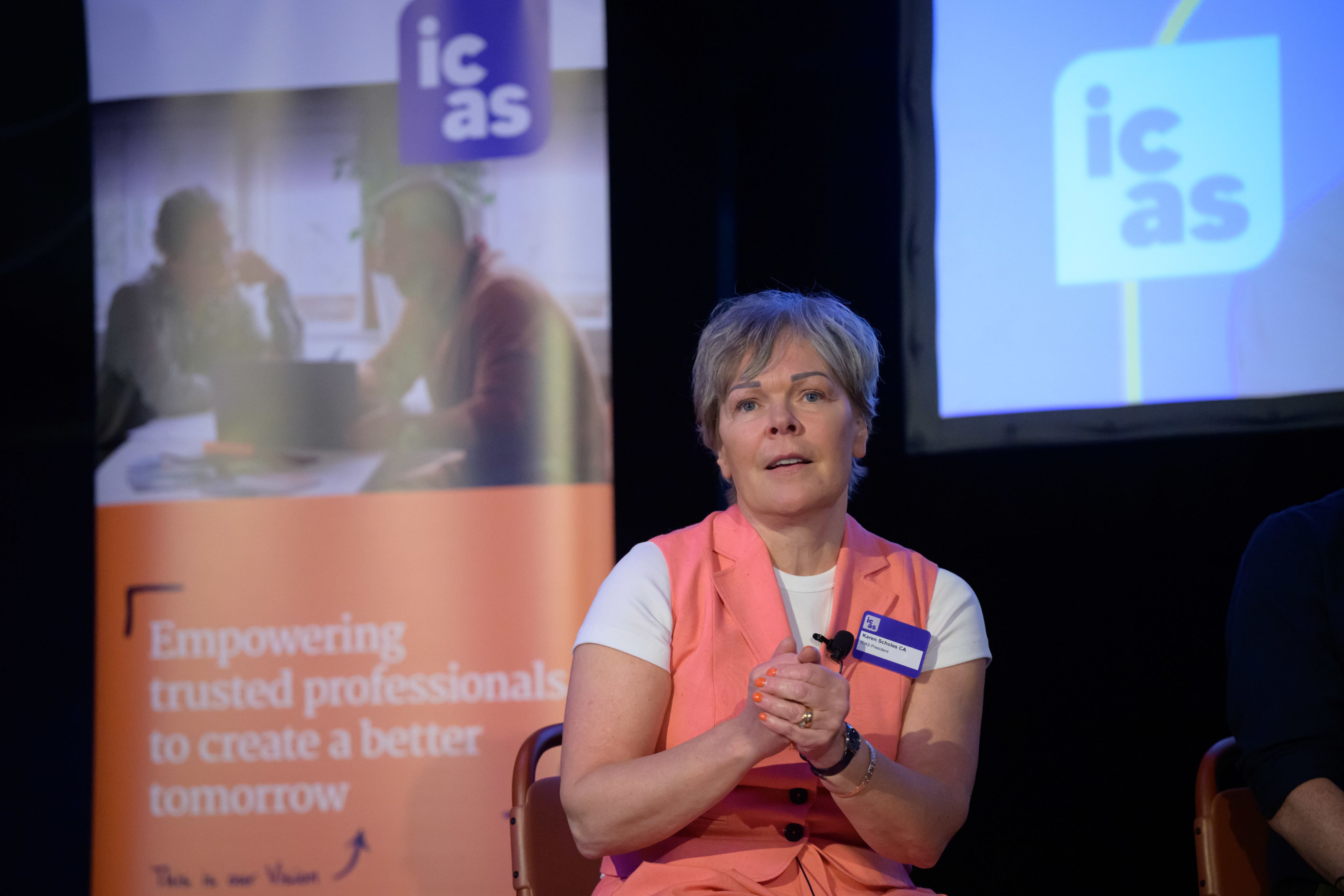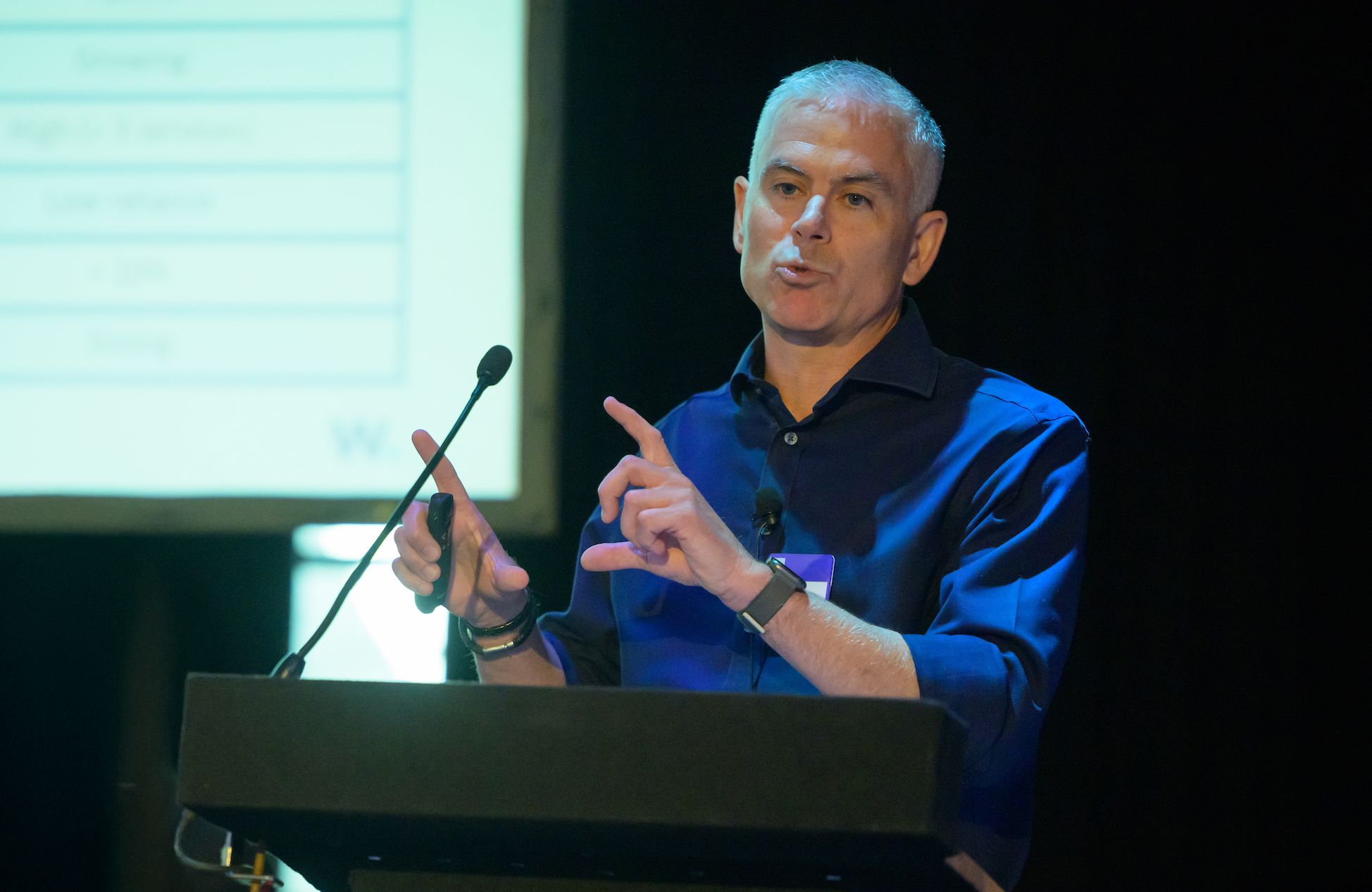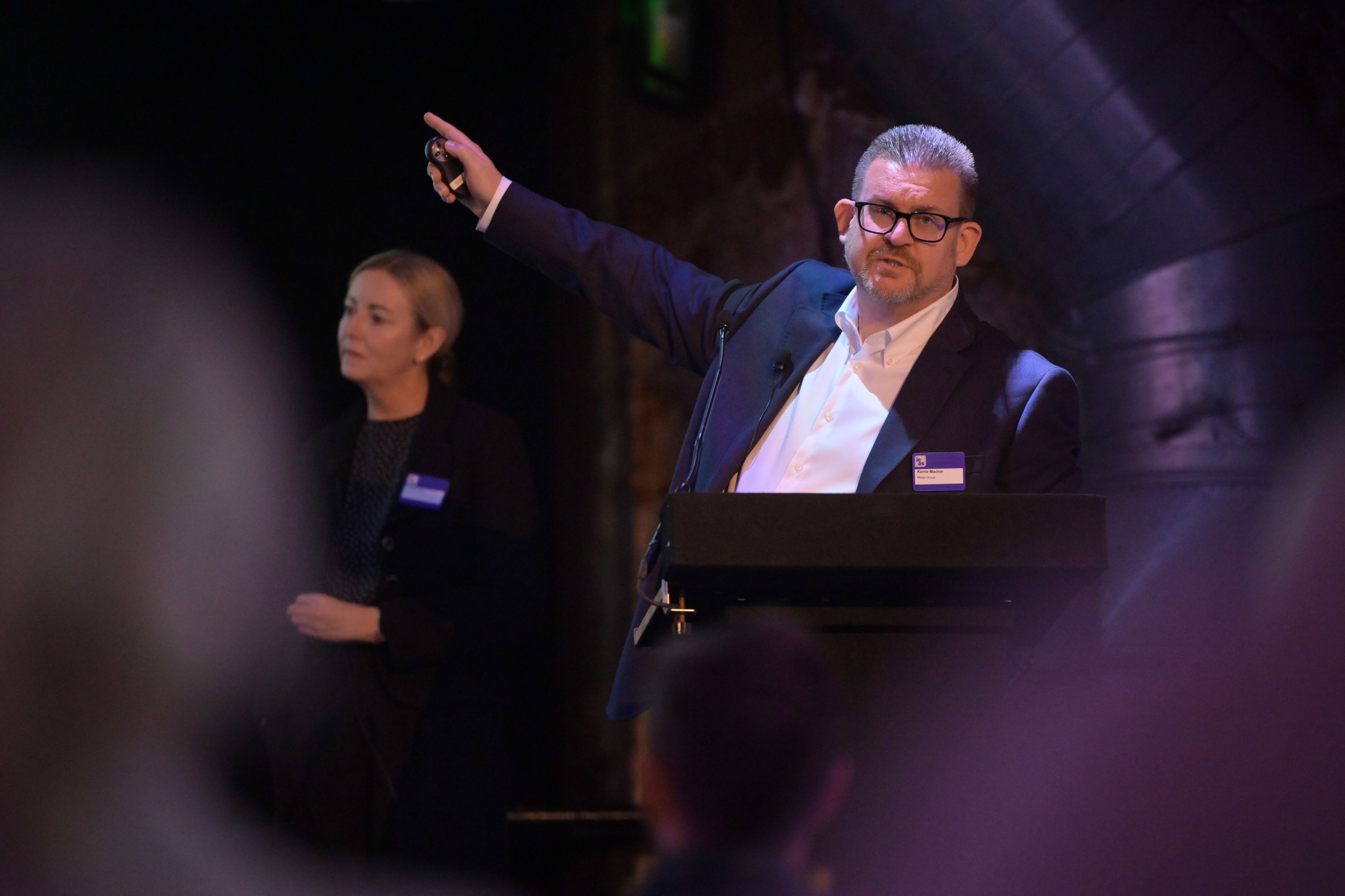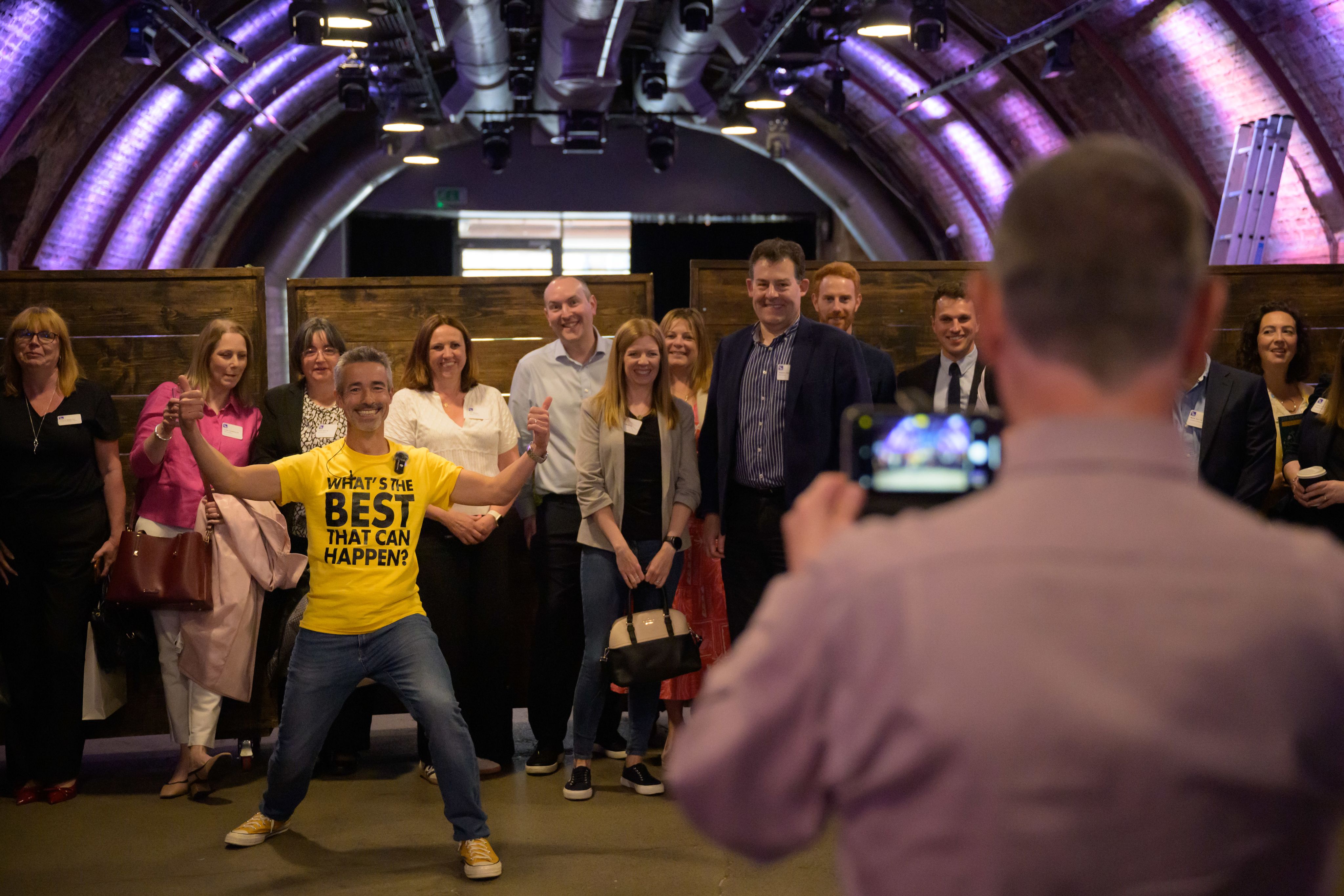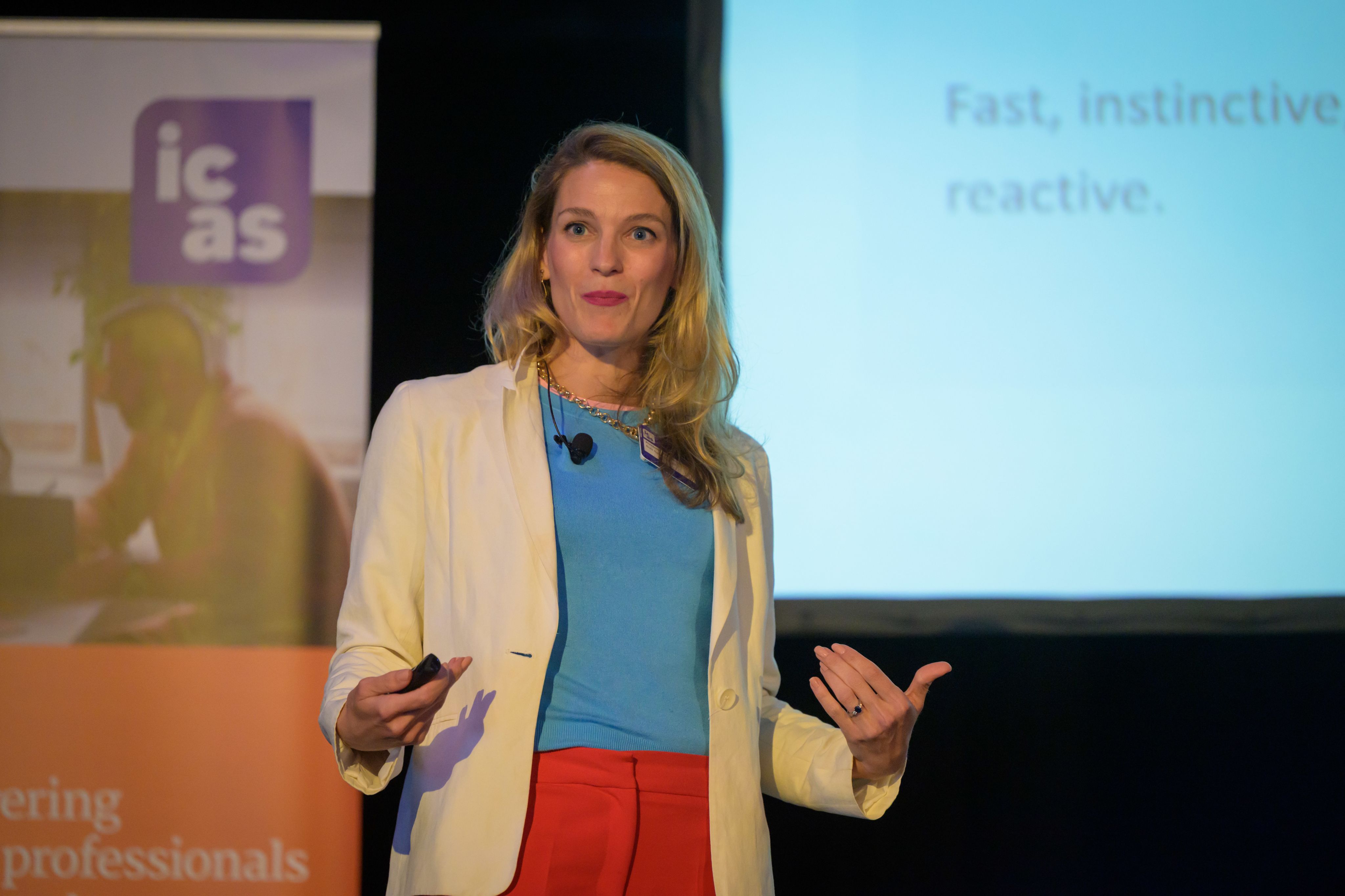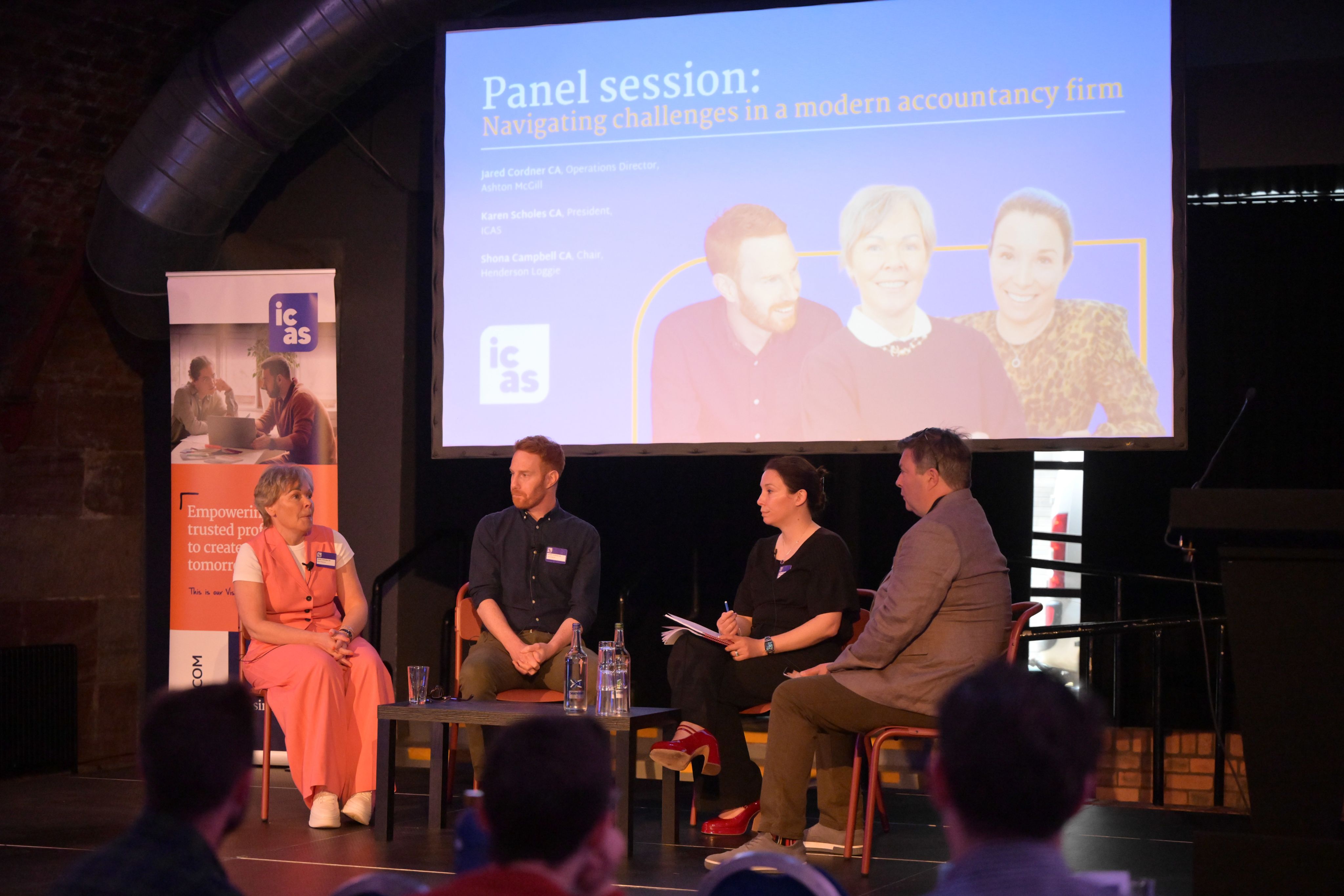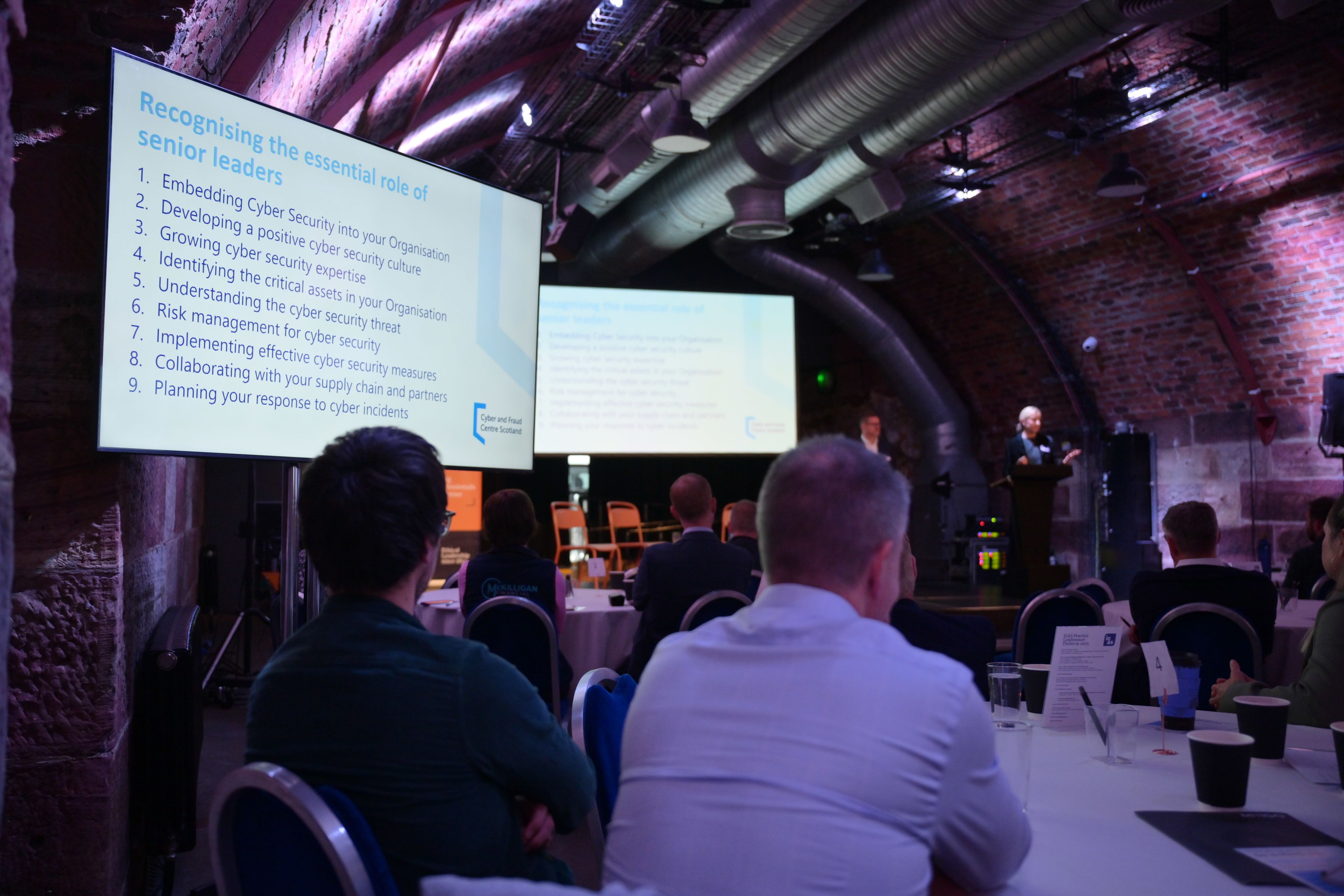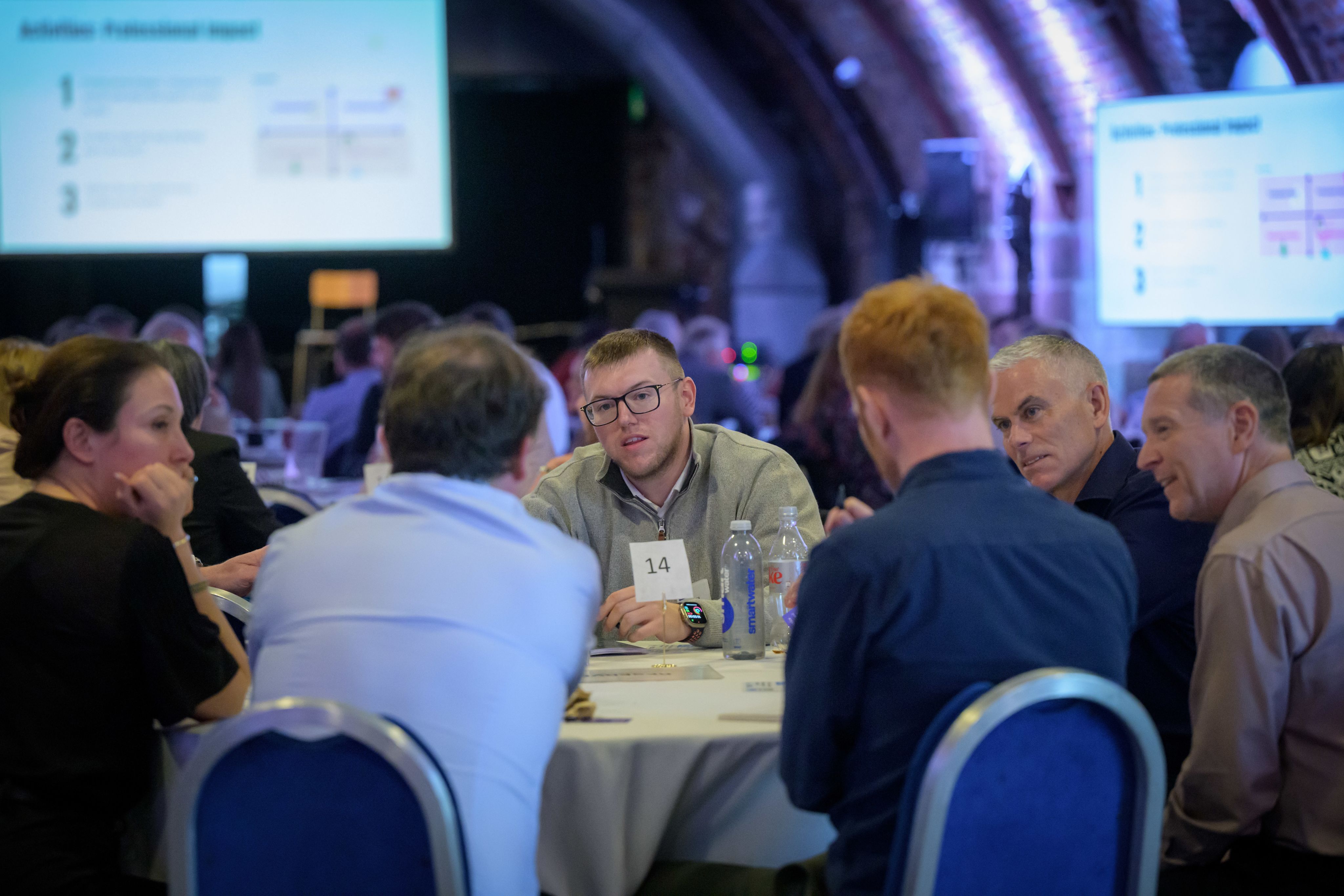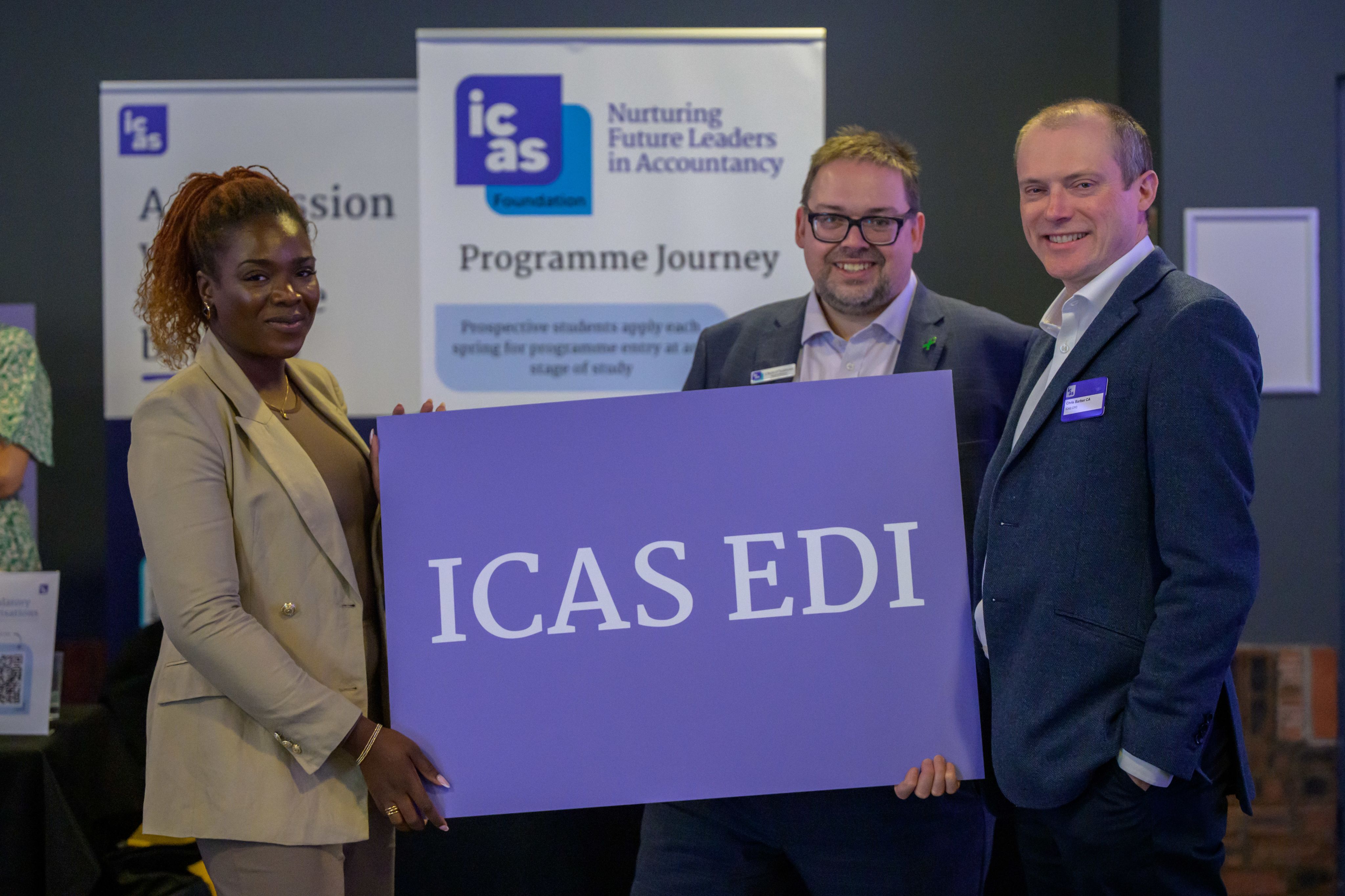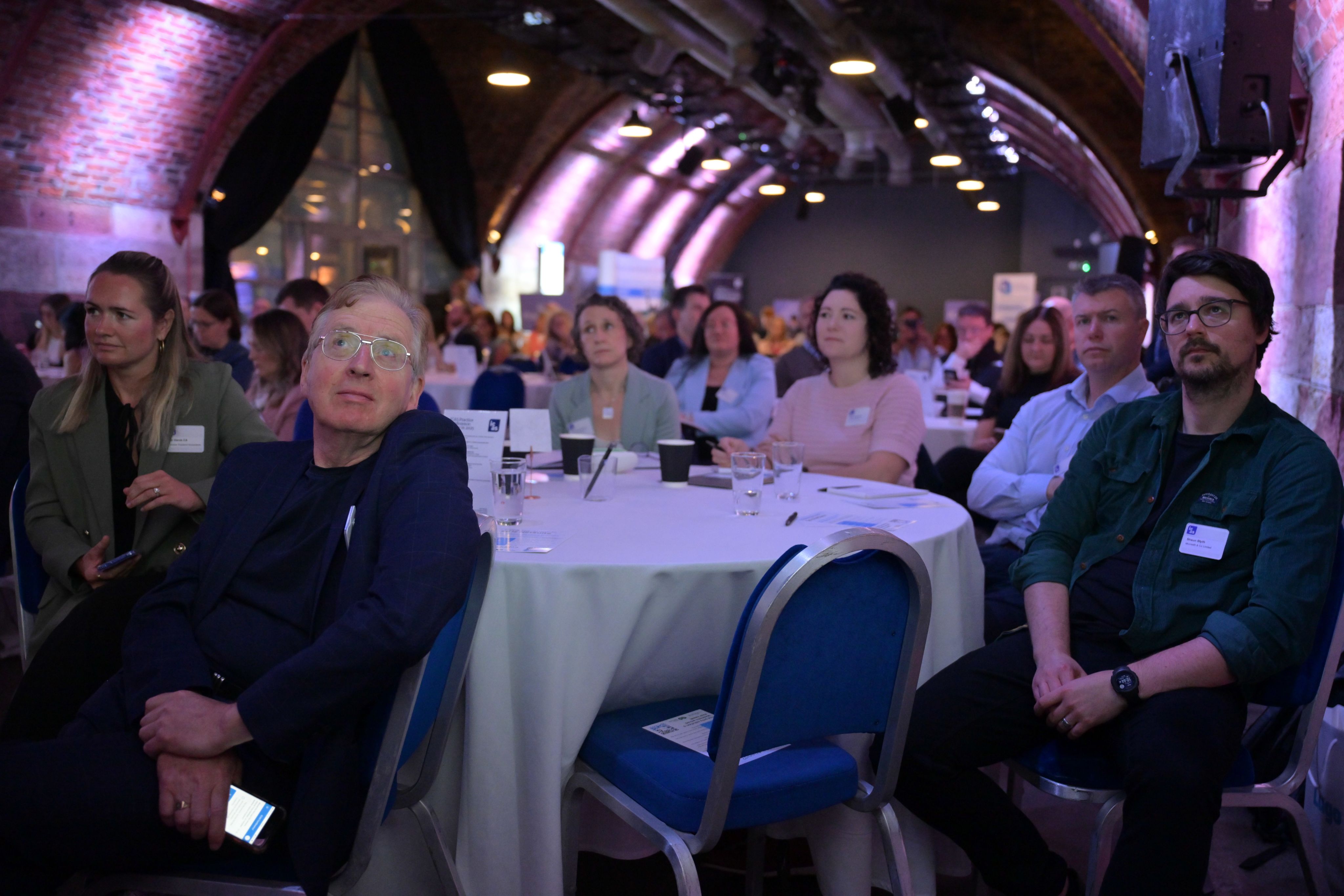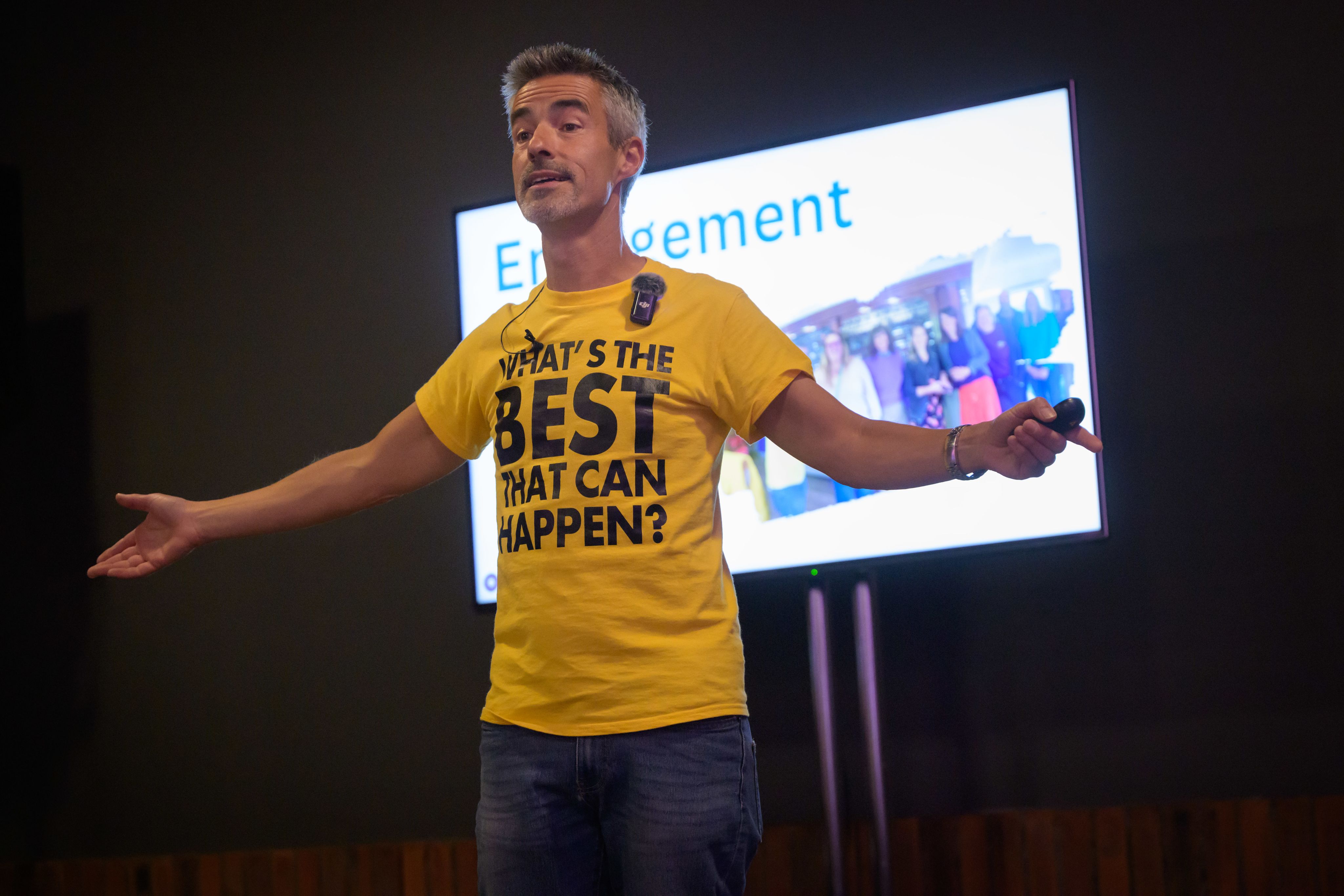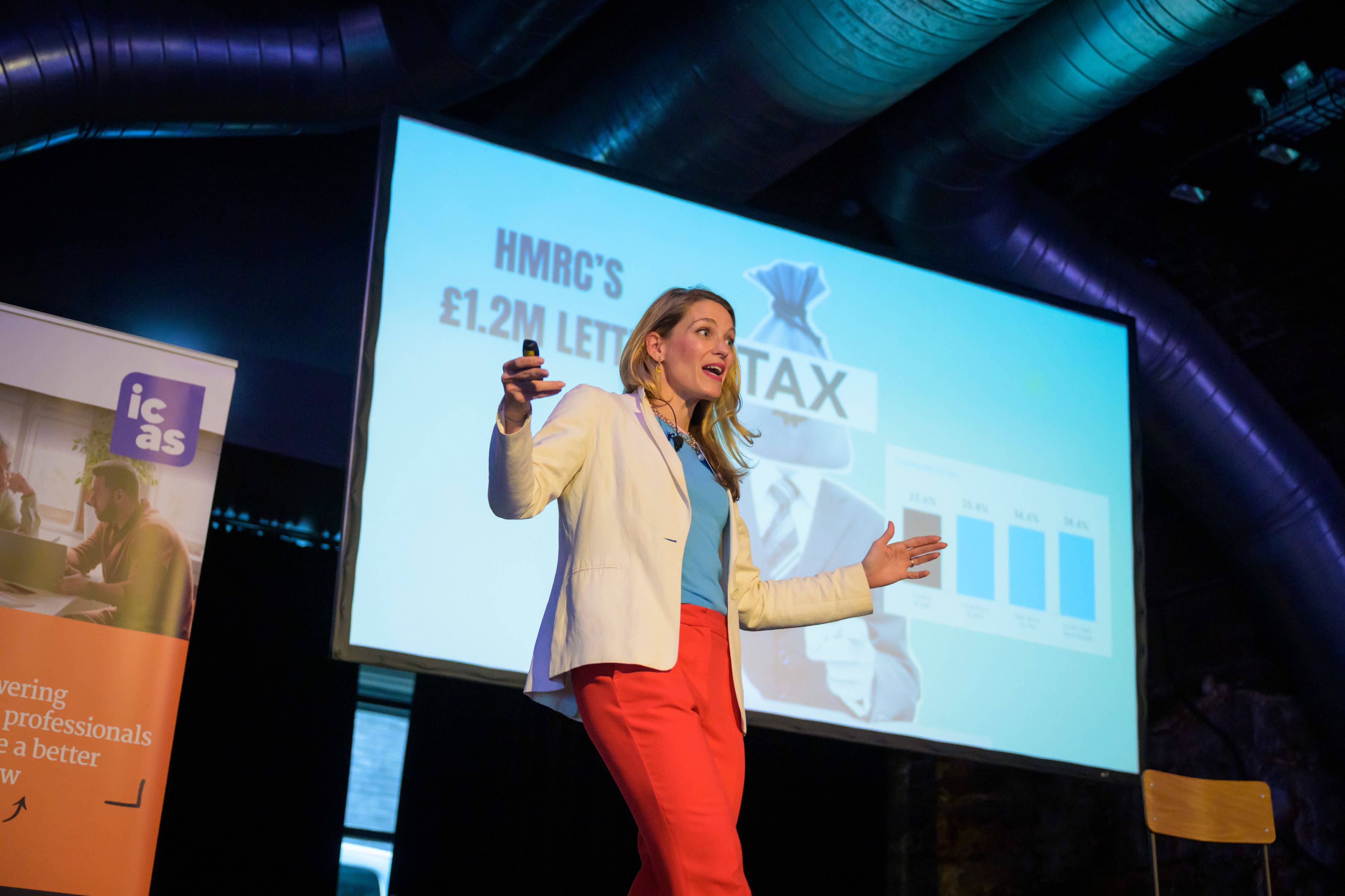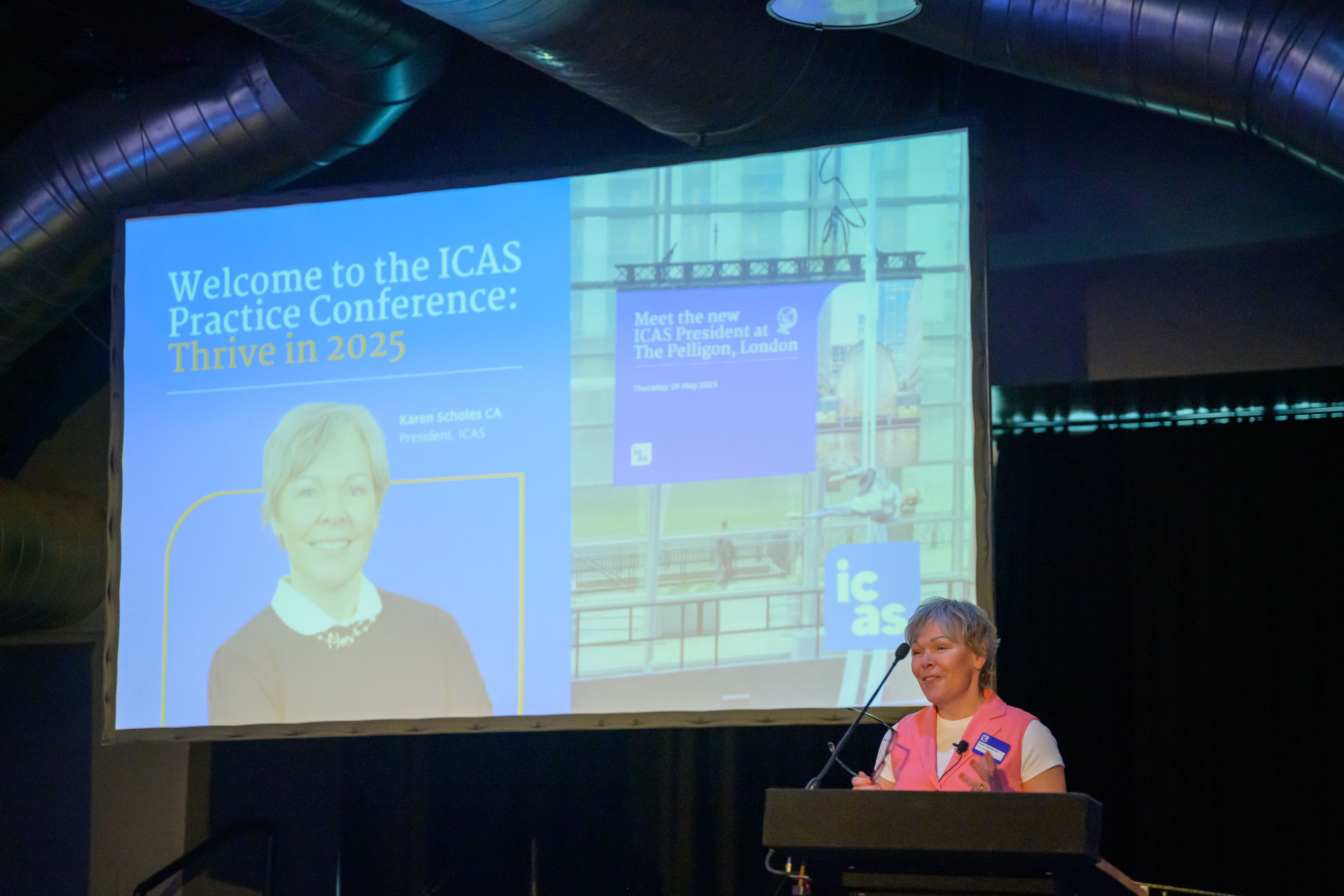A rallying call for ‘professional rebels’
This year’s ICAS Practice Conference spotlighted AI, cybercrime, private equity and behavioural science. Join us as we look back at ‘Thrive in 2025’, staged in a subterranean setting that reminded some of their nightclubbing days

A rallying call for ‘professional rebels’
This year’s ICAS Practice Conference spotlighted AI, cybercrime, private equity and behavioural science. Join us as we look back at ‘Thrive in 2025’, staged in a subterranean setting that reminded some of their nightclubbing days
You don’t often see people queuing up outside a nightclub at 9am on a Wednesday morning, let alone CAs. But the ICAS Practice Conference tends to do things a little differently. Billed as “Thrive in 2025”, this year’s event was held in June at Platform in the centre of Glasgow. And stepping into its stylish subterranean interior brought back memories for some attendees. Previously known as the Arches, it used to be one of the city’s late-night hotspots.
The scene was therefore set for a day of challenging conventional thinking. The audience was asked unexpected questions – from how we think about people, process and technology, to the comparative dangers of dogs and cows, and what happens when you give a disgruntled monkey a slice of cucumber instead of a grape.
Presentations covered big themes such as technology, cybercrime and AI, private equity and market consolidation, and talent attraction and retention. One of the key messages was that, to look after your clients and your employees, you need to look after yourself first. Another was that everyone is different. “I’m not a typical accountant,” said one CA to me during the coffee break. “Then again, who is?”
1
Navigating modern challenges
Expertly hosted by Richard Sergeant of Principle Point, the programme kicked off with ICAS President Karen Scholes CA introducing a panel session about ways to navigate modern accountancy firm challenges. She began by addressing the critical issue of talent attraction and retention.
“We need to get more young people interested in what we do and I still think that the word ‘accountant’ has a stigma to it,” she said. “We’ve got to change the perception of the practice.” As a director of Scholes CA, an Orkney-based family firm, she has expanded the business to offices in Aberdeen, Laurencekirk and Edinburgh – and is also keen to widen the net of who considers a career as a CA.
“That’s where the ICAS Foundation is so important in giving bursaries and grants to study accounting and broaden access,” she says. “If you look at the statistics, less than 20% of people who become CAs are from working-class backgrounds, and that’s shocking because we find that a lot of students who come to us through the foundation excel.”
Shona Campbell CA, Chair of Henderson Loggie, shared some of the approaches to talent retention embraced by a practice that now has around 190 partners and staff, with offices in Dundee, Glasgow, Aberdeen and Edinburgh.
“We survey the team regularly and look at what the top- or bottom-scoring issues are and how we can address them,” said Campbell. “For instance, a couple of years ago, people wanted more flexible working hours, so we did a lot of work in terms of introducing new polices around that.
President Karen Scholes CA
President Karen Scholes CA
“Then when we did our most recent survey, flexible working was no longer such a big issue – interest had moved on to growth and development opportunities. If you know what is important to your people, you can focus on the priorities. So now we’re introducing role profiles and career pathways for everybody in the firm.”
The panel was completed by Jared Cordner CA, Operations Director of Dundee-based Ashton McGill, a practice that takes a very different approach to most CA firms. A limited company rather than a partnership, Ashton McGill aims to redesign accounting to create “a better experience” for everyone – and places the focus firmly on supporting client growth through innovations in data and technology.
“We’ve seen the impact of having a clear mission, and the team rally around that,” said Cordner. “We reframe their work to show the impact it has, and there's a lot of storytelling involved, which is a big thing for us. It also means having a very open and honest working environment where people take ownership.”
Regulation was another issued raised by Sergeant, with Campbell pointing to its “relentless pace and complexity”. She urged fellow CAs to make full use of ICAS in terms of keeping on top of best practice. “Several of our senior staff partners are members of various ICAS board committees,” she said. “Obviously everyone here is engaged with ICAS to some extent, but I think that's a really good way of understanding what’s coming up and what you can learn from other practices.”
2
The rise of private equity in accounting
The session wouldn’t have been complete without addressing the growing influence of outside investment. “Private equity is rising in prominence and whether you’re considering it or not, it’s shaping the landscape we operate in,” said Scholes. “We are a fiercely independent Scottish practice, and have no interest in changing that. But I can also see how private equity can support succession and allow for fresh capital and the development of your IT and infrastructure. Where I’m slightly concerned is that, if you take on private equity and its focus on return on investment, where does the client sit?”
It was a topic explored in greater detail by James Gosling, Managing Director at AJ Chambers. As a consultant in mergers and acquisitions, he clearly sees the positives in private equity and explained the wide range of deals available to practices which may be interested, explaining the pros and cons in each case. “This is a really interesting time for anyone looking at the options,” he said. “As more investment comes into the market, there are more nuances and you can tailor a deal around your particular needs as a person.”
Gosling also explained what private equity investors are searching for, with big tick boxes including strong client relationships, recurring income, stable leadership, robust internal processes, strong data and sound financial reporting.
Allan Wilson, Wilson Partners
Allan Wilson, Wilson Partners
“It sounds crazy to say with a room full of CAs, but most of the accountants that I deal with have not got up-to-date MI [management information],” said Gosling. “The financials are not where they need to be.” Investors also want scalability, he added – firms that have invested in technology and workflow efficiencies tend to be more appealing.
Gosling was then joined on stage by Allan Wilson, Managing Director at Wilson Partners, a Berkshire-based practice. Wilson shared his successful experience of taking on private-equity investment, and stressed its value in building his business. With the company growing steadily, sustaining the culture that he had built has been a priority for him – and one supported by his family office investors. Their focus has been on opening doors to growth opportunities, including a Wilson Partners office in South Africa.
He believes that the current frenzy of PE activity will settle down to the benefit of the profession. “I think the nature of the investors is changing,” he says. “It’s moving towards the longer term rather than looking to flip businesses.”
3
Cybercrime – not ‘if’ but ‘when’
Sandwiched between those two morning sessions was an engrossing presentation on cybercrime from Katie O’Neill, Head of the Skills Academy at the Cyber and Fraud Centre Scotland. She took CAs through a scenario in which an organisation had suffered a serious cyberattack. “It’s not a case of ‘if’, it’s a case of ‘when’,” she said. “That’s how we need to approach it.” The audience was asked to consider how it would respond to various stages of the attack, with O’Neill then explaining the potential consequences of their choices. She stressed the importance of calmness, clear thinking and effective communication.
Kerrie Machin, Director of Business Development at cybersecurity specialists Mitigo, then described a real-life attack example. “Cyber risk goes far beyond technology,” he said.
“We always start with people, then move to tech, and then policy and governance. Business email compromise is the most common form of cybercrime we see.
Kerrie Machin, Mitigo
Kerrie Machin, Mitigo
“Threat actors lurk in inboxes for months undetected, forwarding emails, watching, learning. In one case, a company with just 12 staff had eight compromised email accounts – some infiltrated for over a year.
“The barrier to entry for cybercriminals is now dangerously low,” he added. “With AI and ransomware now offered as a service, even non-technical attackers can do serious damage. There are even licensing agreements for ransomware gangs. They’re organised, they’re efficient and they’re constantly evolving.”
That left the audience with much to chew over during the lunch break, as well as a chance to explore a new feature of the event. The practice hub – open all day – gave CAs the opportunity to talk to experts directly, with stands provided by HMRC, Mitigo, Lugo, Cofficient, XBert and the 15 Minute Guy.
4
Why LinkedIn represents a huge opportunity
Meanwhile Ashley Leeds, the self-styled 15 Minute Guy, took CAs through key steps to building their profile and engagement on LinkedIn. “LinkedIn is free, there’s a billion people on it, and yet only 5% of people on LinkedIn actually create content,” he said, in an energetic presentation that warded off any post-lunch slumbers among the audience. “What you have here is a huge opportunity because the bar is really low.”
Ashley Leeds, the 15 Minute Guy
Ashley Leeds, the 15 Minute Guy
Leeds’ tips included showing up daily (that’s where the 15 minutes comes from), making the effort not just to “like” posts but to add your own thoughts to them (“commenting is currency”) and optimising your profile, image and banner. He also urged CAs to think about what makes them different – whether it’s their approach to work or a hobby – and focus on building their LinkedIn profile around that distinguishing factor.
5
The art of storytelling
That was a technique clearly not lost on the conference’s keynote speaker Alex Bond Burnett of Bold Behaviour Lab, who described herself as a “tabasco-swilling behavioural change strategist and leadership coach”.
Bond Burnett explored what can be learnt from behavioural science to make smarter decisions and forge stronger relationships with clients. “So much of it is about the perception of the client rather than what you’re actually delivering,” she said, adding an observation from advertising guru Rory Sutherland that “the human brain no more runs on logic than a horse runs on petrol”.
“Only about 5% of our decisions are logical and deliberate,” she said. “The remaining 95% are fast, instinctive, emotional and reactive. No matter what you do, you are influencing your client’s decisions and your team’s decisions. So what would it look like if you did that deliberately, with care?
Alex Bond Burnett, Bold Behaviour Lab
Alex Bond Burnett, Bold Behaviour Lab
“Storytelling is really important because it’s the brain's natural way of formatting information. The best stories that you can tell your clients and your team help them to feel that they can save the day.”
She urged CAs to become “professional rebels” who forge their own path and understand that, to take care of the needs of others, they first need to look after themselves.
“Understand your behaviour and the behaviour of others, and start to set boundaries,” she said. “Someone else’s crisis doesn’t have to be your crisis.”
6
In conclusion
Closing the conference, Karen Scholes reflected on Bond Burnett’s presentation. “You might not have thought you’d be coming to a practice conference to hear about the power of storytelling, but Alex showed us how focusing on skills beyond the numbers of accountancy can transform our client relationships,” she said. “I loved her slide that said ‘make the future bright and easy’. I think that’s something we would all like to do – remember that when you return to your day job.”
Find more practice resources
Karen Scholes sums up
Karen Scholes sums up
Karen Scholes sums up
Karen Scholes sums up
6
In conclusion
Closing the conference, Karen Scholes reflected on Bond Burnett’s presentation. “You might not have thought you’d be coming to a practice conference to hear about the power of storytelling, but Alex showed us how focusing on skills beyond the numbers of accountancy can transform our client relationships,” she said. “I loved her slide that said ‘make the future bright and easy’. I think that’s something we would all like to do – remember that when you return to your day job.”
Find more practice resources




